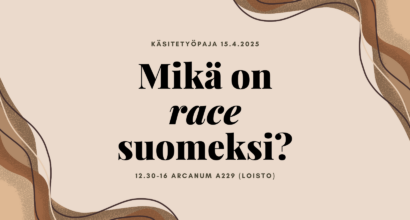Intersectional Reading, Social Justice and Literary Activism
Reading has become a major focus of contemporary discussions on social justice. Recently, reading- related activism has seen many forms (the reading hour-movement, Amanda Gorman’s case of translating her inaugural poem, Lukemo-project in Finland). However, there is no academic research on Activist reading. We understand activism as a sensitive move towards gradual, small changes. We emphasize the meaning of microactivism, long-term analysis and concentration on structural inequalities in order to “show the bigger picture”. We highlight our mode of activism as intimate activism developed through reading. We envision intersectional reading as a mode of intimate activism that uses language and reading to analyze power, in order to increase democracy. As several scholars have pinpointed, intersectionality is both a theory and a mode of activism committed to social justice. Originating from the long tradition of Black feminist social movements and literature, intersectionality today is a research tool that conceptualizes the multiple, relational and complex power dynamics connected to race, ethnicity, gender, sexuality, class, able-bodiedness, age, social status, species, or any such factor that is relevant to our socio-cultural experiences. Intersectionality analyzes how those factors locate people differently in our social and cultural reality, especially in relation to societal structures of inequality (e.g. Hill Collins and Bilge 2016, May 2015, Carastathis 2016.) In this project, we direct intersectionality’s potential in increasing social justice and educational democracy to the use of literary educators; we claim that systems of social inequalities may be exposed, acknowledged and analyzed in literature. These phenomena may be constructively scrutinized through the method of intersectional, activist reading. In this project we will develop modes of reading, and tools for literary educators that can target (young) people’s needs for slow, intimate activism. Thus, our focus is to create a) a methodology, and b) a pedagogy for intersectional reading practices for the purposes of intimate activism. Our project imagines a form of literary activism and social justice-oriented pedagogy needed in times of complex global systems of inequalities.
The project is led by Dr Kaisa Ilmonen with researchers Dr Kaiju Harinen and Dr Marta-Laura Cenedese. Other project members are Lotta Luhtala, Anastasia (A) Khodyreva, Koko Hubara, and Liisa Merivuori.
The project is funded by Kone Foundation (2022–2025).
News


